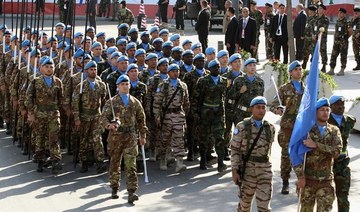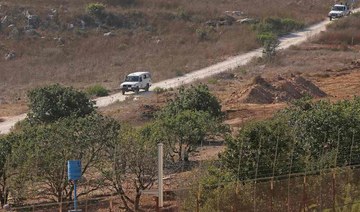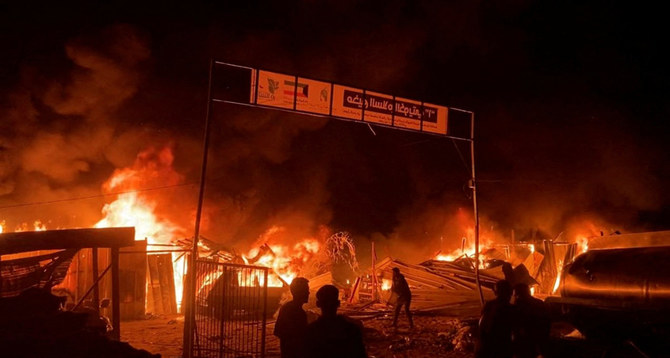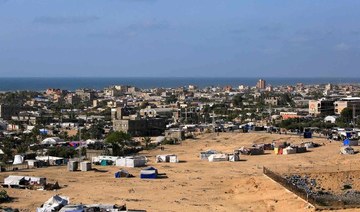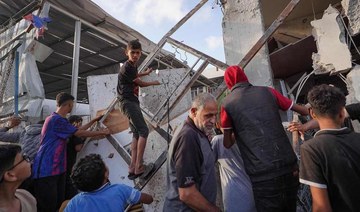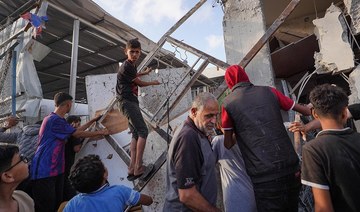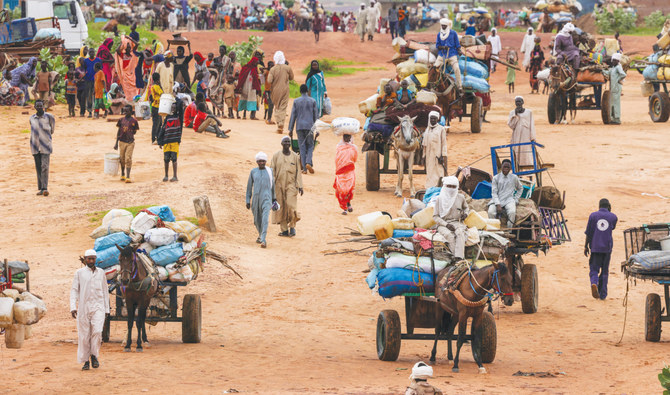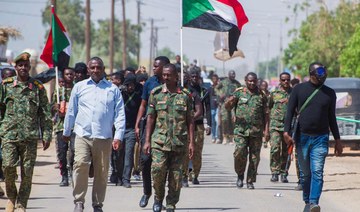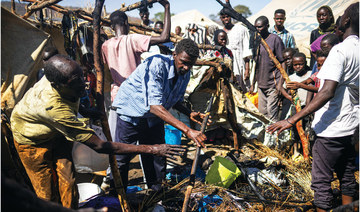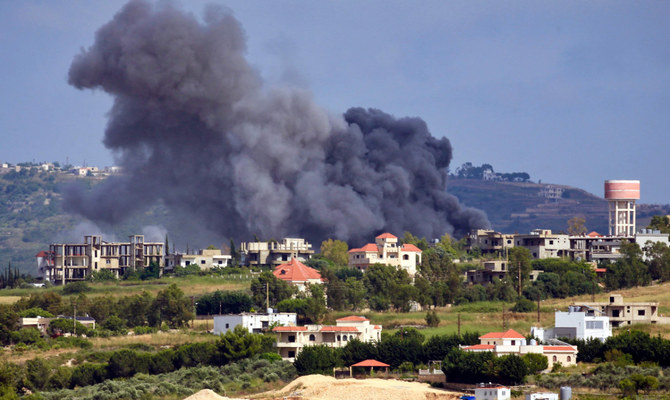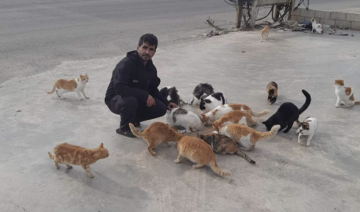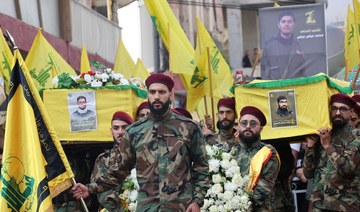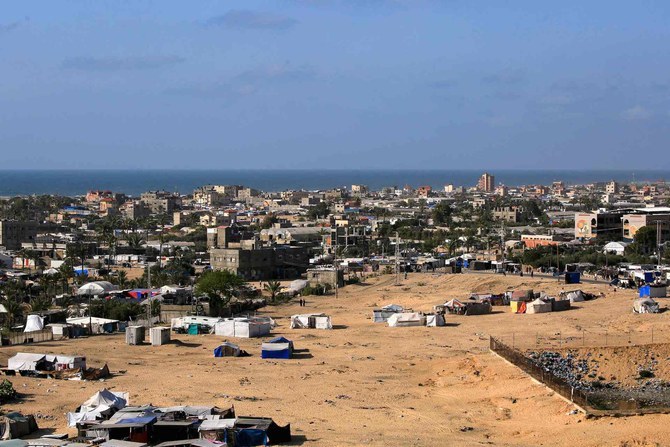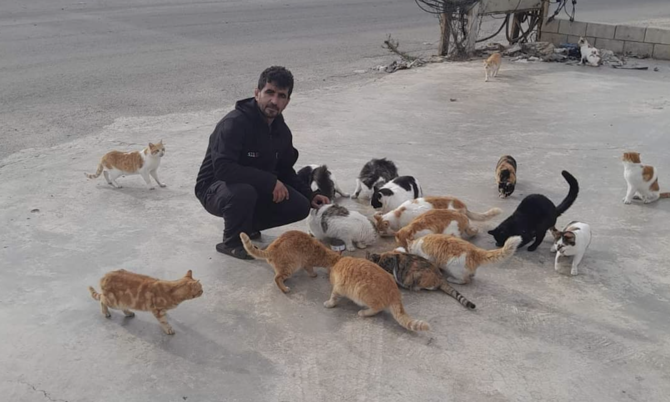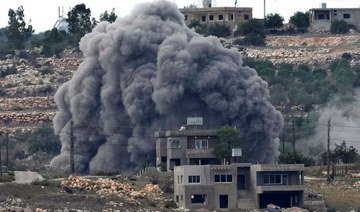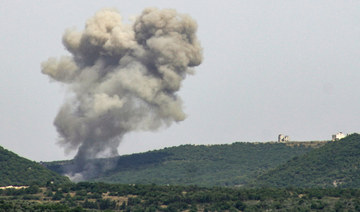BEIRUT: Lebanon’s President Michel Aoun has condemned “any attack that targets the UN Interim Force in Lebanon,” after UNIFIL troops were injured during violence on Tuesday.
In a meeting on Wednesday, Aoun informed Joanna Wronecka, the UN’s special coordinator in Lebanon, that the government had launched a probe into the attack west of the southern village of Ramyeh. He pledged to establish who was responsible.
UNIFIL spokesperson Andrea Tenenti said on Tuesday night that a number of peacekeepers on a routine patrol were attacked after their cars were intercepted. The incident left one soldier wounded.
He said that “the attackers sabotaged two vehicles and stole a number of items,” adding that “the Lebanese armed forces were present at the scene and managed to defuse the situation.”
Tenenti stressed that “the peacekeepers weren’t in private properties but on a public road they usually take.”
They were doing their job, executing decision No. 1701, and maintaining stability in south Lebanon, he said.
Tenenti warned in a statement that “the attacks on the men and women who serve the cause of peace are considered crimes pursuant to the Lebanese and international laws.”
He called on the Lebanese authorities to “investigate this incident and prosecute those responsible for it.”
The UNIFIL patrols have been the target of two other attacks recently. Troops were targeted in the border village of Chakra at the end of last year and in Bint Jbeil village earlier this month.
The area where these attacks took place is considered critical to Hezbollah as it is adjacent to the border, where several important Israeli military positions are found on the other side.
The latest attack on the UNIFIL patrol occurred while Lebanese officials discussed messages conveyed by Kuwaiti Foreign Minister Sheikh Ahmed Nasser Al-Mohammed Al-Sabah, in the name of Kuwait, the Arab and Gulf family and the international community, to Lebanon at the end of last week.
The minister sent a message of “sympathy, solidarity, synergy and love for the brotherly Lebanese people,” urging Lebanese officials to adopt a position of neutrality and ensure that the country “will not be a platform for any aggression, while refraining from interfering in the internal affairs of Arab countries in general, and the Gulf in particular.”
Al-Sabah reaffirmed a regional desire “to see a stable, secure and strong Lebanon by implementing international and Arab resolutions.”
Kuwait is expecting to receive a response through the Lebanese Foreign Minister Abdullah Bou Habib next Saturday during his visit to Kuwait.
While Hezbollah has not reacted to the Kuwaiti initiative, some political observers saw the attack on the UNIFIL patrol as an indirect display of Hezbollah’s objection.
However, a source who works as a link between the UNIFIL, the villagers and Hezbollah, told Arab News: “The attack that took place has nothing to do with any political or security messages.”
He said: “The patrol that was attacked is affiliated to the Ghanaian force participating in the UNIFIL.
“It appeared that while it was using a public road, one of its cars hit, intentionally or unintentionally, a water tank belonging to a farmer who used it to water his plants.
“The patrol didn’t stop but instead kept going without probably noticing that it had hit the tank. The tank owner, joined by a number of villagers who usually stand by each other in the village, followed the patrol and attacked it. This is what happened.”
The source, who requested anonymity, said the previous two attacks were different. “One of them happened because some UNIFIL soldiers were taking pictures in internal alleyways, whereas the other one took place because they entered some private properties and this is not allowed as per decision no. 1701.”
The source added that “this attack doesn’t align with any of Hezbollah’s positions regarding the Kuwaiti initiative.
“If Hezbollah wanted to object to the Kuwaiti initiative that targets in its essence the management of the country, attacking the Ghanaian force is not going to be the response.”
This development coincided with the announcement by Israeli Minister of Energy Yuval Steinitz that “border negotiations with Lebanon on US-mediated maritime demarcation, hosted by the UNIFIL in its headquarters in Naqoura, will resume next week.”
Lebanon has been waiting since the end of last year for the return of the US mediator Amos Hochstein to the region with fresh proposals to resume talks over maritime borders demarcation between Lebanon and Israel.
UN Secretary-General António Guterres announced during his visit to Lebanon at the end of last year that “the nations are ready to sponsor these negotiations.”
Meanwhile, Lebanon signed deals on Wednesday to purchase electricity from Jordan via Syria to help the country deal with its crippling energy crisis.
The electricity will be transmitted through Syria. The deals are expected to bring Lebanon up to 250 MW of electricity a day within two months, enough for about two hours of power a day.
The World Bank is expected to finance the deals, with negotiations underway.
Lebanon’s Energy Minister Walid Fayyad said he expects financing negotiations to conclude within two months.




